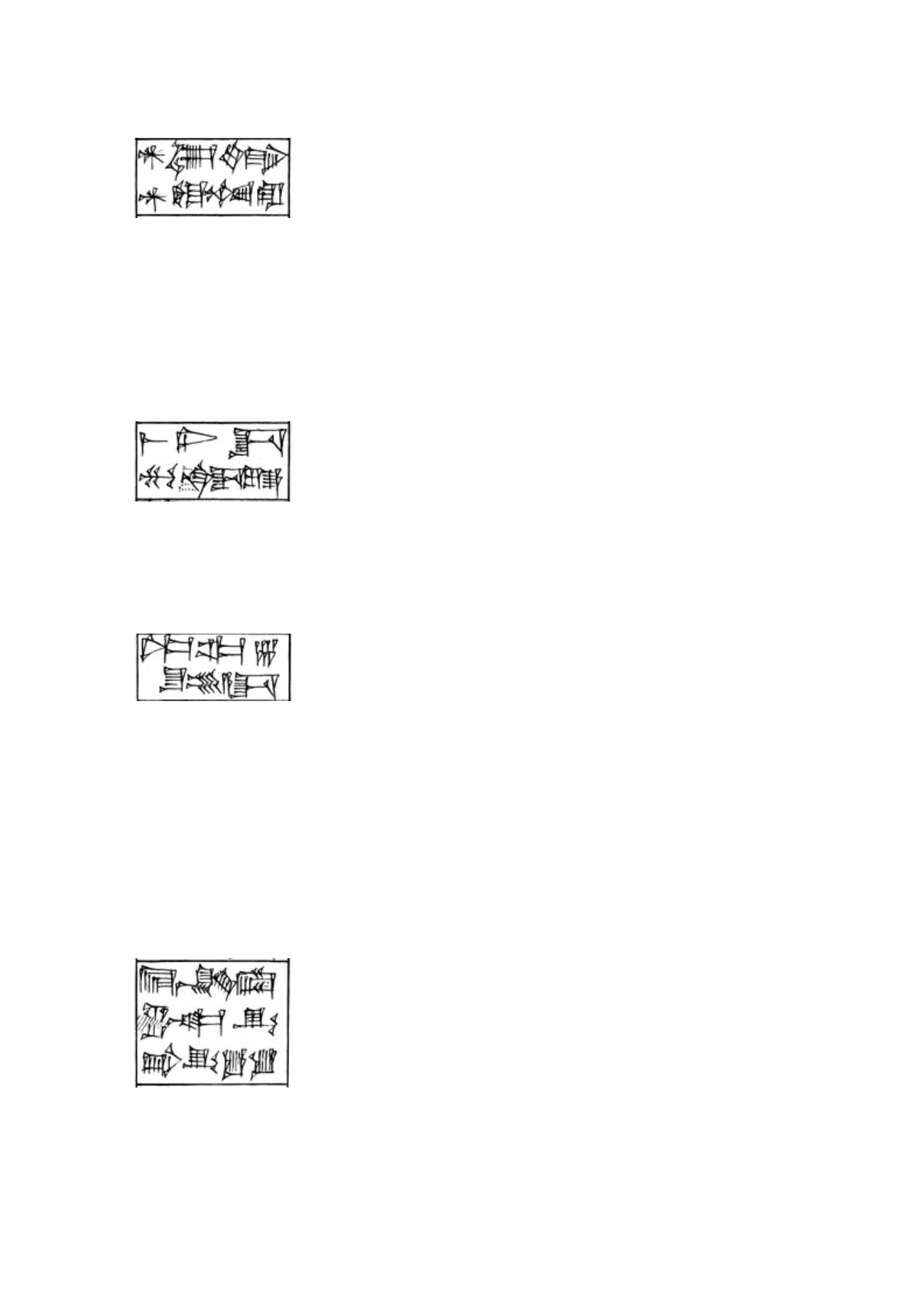

383
Gudea di Lagash – La costruzione del tempio di Ninjirsu - Cilindro B
B VII.10 – 969
d.šul.šag
4
.ga d.nin.jir
2
.su
2
.ra
d
Šul.šag
4
.ak
d
Nin.Jirsu.raShul-Shaga, a Ninjirsu,
d
Šul.šag
4
.ak : poiché šul [DUN] (vedi LEC.375, MEA.467) vale “young man; warrior”, “strong, heroic,
proud, splendid” (SL), “(to be) manly; youth, young man” (PSD2.247), accadico
e
&
lu
, il nome di questa
divinità può intendersi come “eroico di cuore; dal cuore valoroso”; Falkenstein traduce “der Jüngling
nach dem Herzen” (GSG1.93)
d
Nin.jir
2
.su
2
.ra : vedi B VI.23
B VII.11 – 970
me.ni.damu.na.da.LU.e
me.ani.damu.na.da.dib
!
.e
con la sua funzione (divina) (Gudea) introduce.
Vedi B VI.23
B VII.12 – 971
šita
2
saj imin šu du
8
.
a.dašita
2
saj imin šu du
8
.eda
Per prendere in mano la mazza-shita a sette teste;
(jiš)
šita
2
: “mace (uš
2
, 'to kill', + ta, da
2
, 'by means of')” (SL); “masse d’arme” (PLS.136); PSD2 oltre a
riportare.
šita
“a weapon” (PSD2.239), riporta anche
rig
3
[ŠITA
2
] “stick; weapon” (PSD2.203)
šita
2
saj imin : “die šita-Waffe, (die) dieben Köpfe (besitzt)” (GSG1.64n2); “ šita-Waffe mit sieben Köpfen”
(GSG2.18n3); cfr. A XXV.25
šu du
8
.eda : “dass in der Hand gehalten werde”, infinito (GSG1.140; .eda > .ada) del verbo šu…du
8
[ŠU.GABA] “die Hand öffnen = in der Hand halten” (GSG1.123), “to hold in the hand (with -ni- or bi-)
('hand' + 'to open')” (SL); “to hold” (PSD2.241). Il verbo, transitivo, è qui usato con significato passivo:
“in der Hand gehalten werden” (GSG2.62). Per questo verbo, vedi A IV.25, V.3, 22; VI.4
B VII.13 – 972
e
2
en.kara
2
ka
2
[
me
3
]
.ka
ig.be 2jal
2
.
[
taka
4
.taka
4
]
<.da>
[e
2
en.kara
2
].ak [[ka
2
me
3
].ak].ak ig.bi.e jal
2
.taka
4
.taka
4
.eda
per aprire il portale della casa dell’enkara, la porta della battaglia;
[e
2
en.kara
2
].ak [[ka
2
me
3
].ak].ak: doppio genitivo anteposto: “della casa dell’enkara, della porta della
battaglia”
















